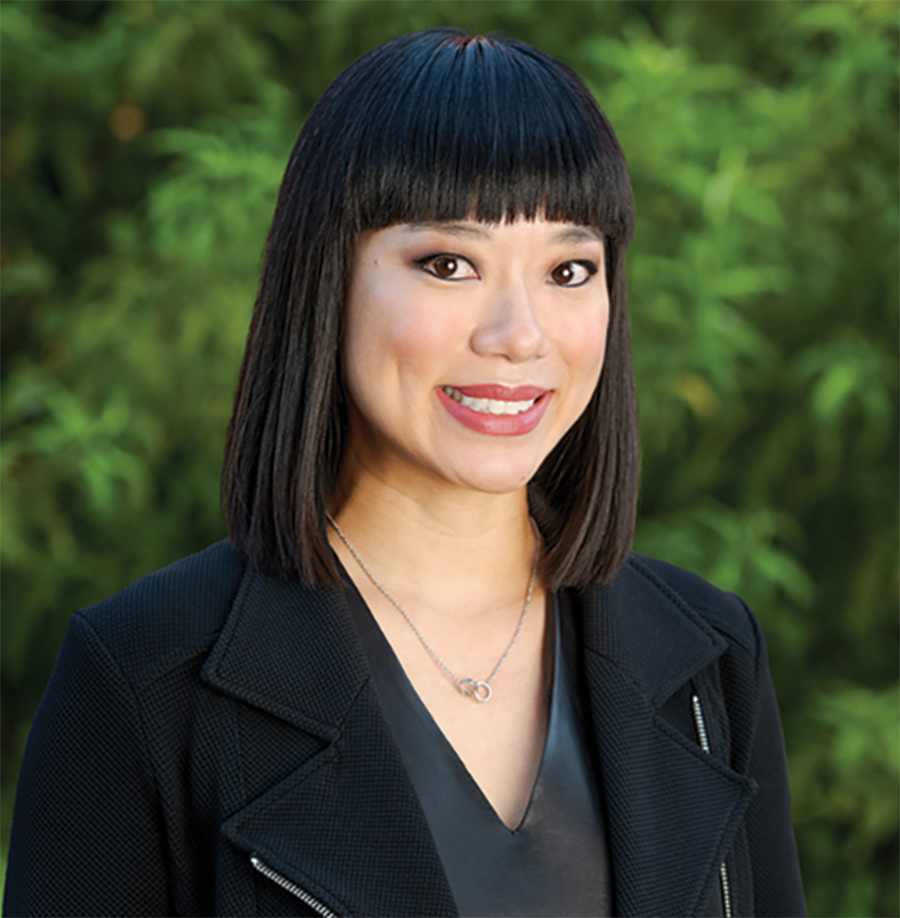Collecting lenses for greater understanding

Collecting lenses for greater understanding
Alumna Grace O’Sullivan says DEI is crucial to examine
s vice president of Corporate Engagement and Strategic Partnerships for ASU’s Knowledge Enterprise, Grace O’Sullivan (MBA ’10) is responsible for advancing high-impact partnerships, and corporate and economic development. She recently joined the W. P. Carey School of Business for a discussion around diversity, equity, and inclusion (DEI).
A second-generation American of Chinese descent, O’Sullivan has always felt somewhat like an outsider. “When I think about inclusion, I reflect on my personal experience. I grew up in a home that spoke only Mandarin Chinese,” she says. “I didn’t learn English until I went to kindergarten.”
O’Sullivan describes examining the lens through which we see inclusion, belonging, and diversity as essential work. “Whether it’s managing yourself or your internal state, your values and beliefs impact how you carry yourself in every situation.”
She uses this train of thought as she navigates her career. “Sometimes I engage with a situation through my ASU lens or my identity as a woman, or as a minority, or as a board member,” she explains. “I would encourage you to always look at things through various lenses; collect those different perspectives, and understand where others are coming from, too.”
An inclusive mindset is a positive thing. “Try to seek out various perspectives,” O’Sullivan advises. “My best friend couldn’t be more opposite from me in every way. Engaging in civil discourse gives you the opportunity to think about diversity and inclusion from varying perspectives.”

Bringing people together creates a community where people feel their opinions and ideas matter. “I think when you achieve that, you can create a wonderful sense of belonging. From that lens, everyone will feel valued and engaged,” she says. “At ASU, we have a responsibility to create that type of community.”
Taking the time to have conversations with students can make a huge difference. “I spoke with a young mom who wanted to apply to the MBA program. She was hesitating with her decision,” O’Sullivan remembers. “I said yes, you should absolutely apply. It’s essential we have students that serve as role models for others.”
She had another conversation that made an impact. “I spoke with a woman who wasn’t born in America. She immigrated here in her teens,” explains O’Sullivan. “Her accent made her afraid to speak up in meetings; I reminded her that an accent is a sign of bravery. It shows your resilience. That’s a beautiful thing.”
Every member of the ASU and W. P. Carey community — including our alumni — can help to create a welcoming and inclusive campus environment. “If you can change one person’s experience, it has a ripple effect,” says O’Sullivan. “We are always thinking about improving the student experience.”
Mentoring current ASU students is a great place to start. Visit mentorship.asu.edu to learn more about your potential impact on campus and beyond.